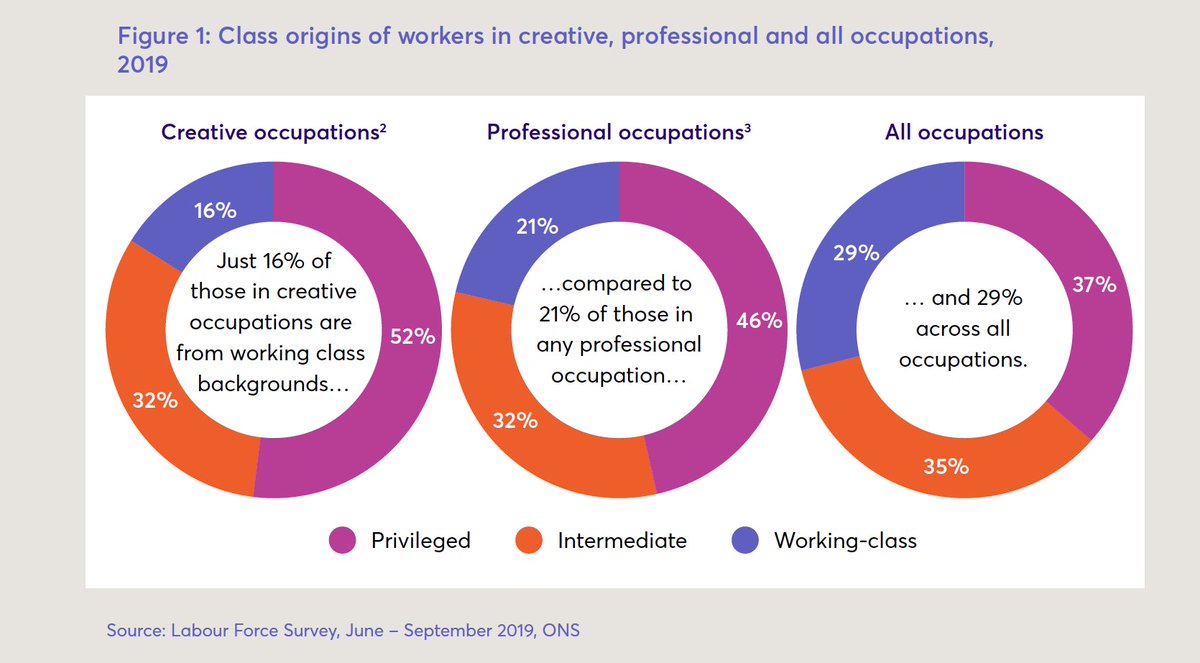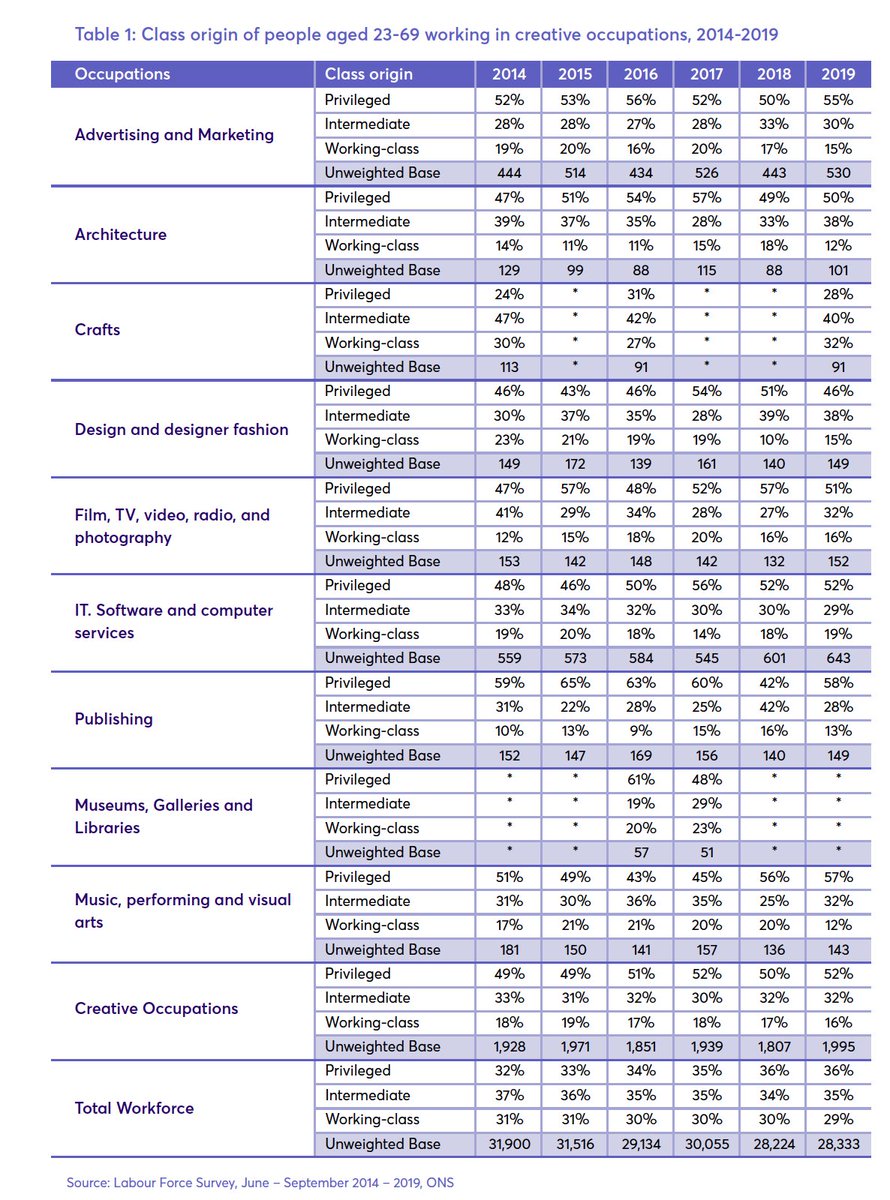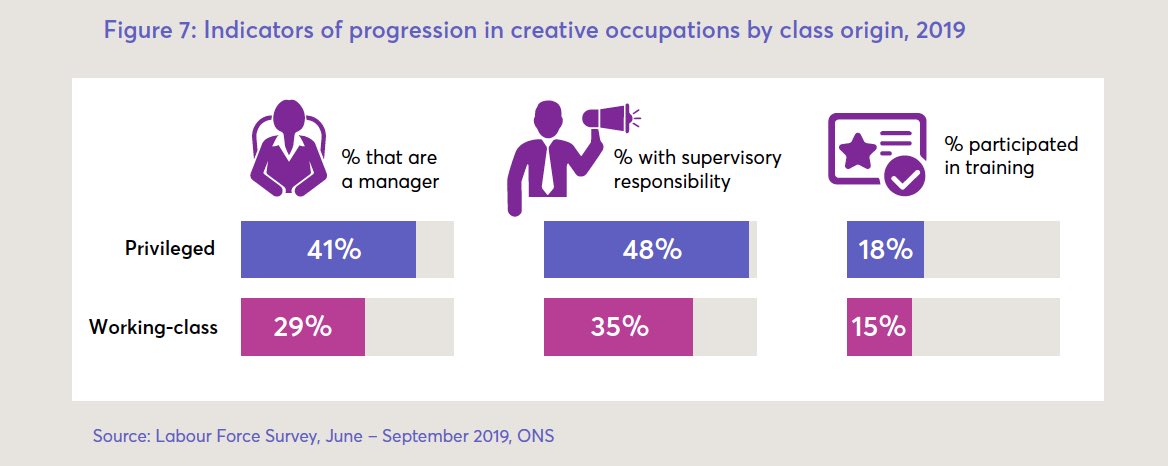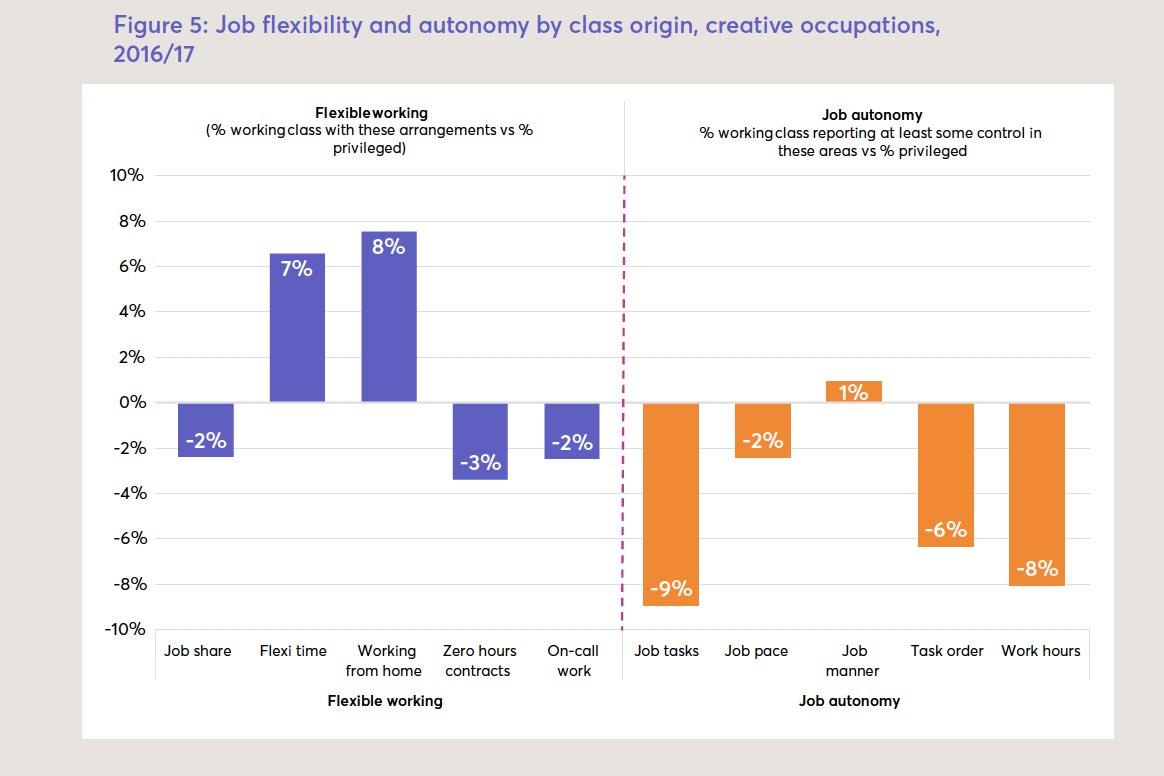Thread! We know cultural and creative jobs are highly exclusive & unequal. But what is the most up to date picture? How are things changing over time? Today @CreativePEC launch new analysis of the @ONS labour force survey, covering 2014-2019. The results are bleak reading>
In a 2016 paper @SamFriedmanSoc @Daniel_Laurison @AGMcat & I, Using 2014 @ONS Labour Force Survey data, demonstrated the exclusion of working class origin individuals from key cultural occupations https://www.tandfonline.com/doi/full/10.1080/09548963.2016.1170943">https://www.tandfonline.com/doi/full/...
For the new analysis @RFlorisson @ndrlee @HCareyWF & I looked at the LFS from 2014-2019, along with some @usociety data. LFS 2019 is the most recent set of data where we have class origin information about cultural and creative occupations https://www.pec.ac.uk/research-reports/getting-in-and-getting-on-class-participation-and-job-quality-in-the-uks-creative-industries">https://www.pec.ac.uk/research-...
There is clearly a class crisis on cultural jobs. Just 16% of those in creative occupations are from working class origins. This compares to 21% of those in any professional occupation & 29% across all occupations in 2019
Across individual occupations we see similarly worrying numbers- in 2019 only 12% of music, performing and visual arts, 13% of publishing, and 16% of film, TV, video, radio, and photography occupations were from working class origins
These class inequalities in key cultural occupations persist over time. If we look at our middle class, most privileged, origin workers, we see they have dominated publishing for the 5 years for which we have data- they are now 58% of the workers in publishing occupations
The story is the same in Music, performing, and visual arts occupations, with 57% of workers from middle class, privileged origins. This story has been consistent over our 5 year period
And in Film, TV, video, radio, and photography occupations too (51%), showing the persistence class inequalities over the 2014-2019 period
Specific occupations are especially exclusive- Authors, writers and translators, for example, are currently just 13% working class origin, Journaliats, newspaper and periodical editors only 14%
We bring an intersectional perspective to our analysis of class origin data- finding that women, people of colour, those living with a disability, and those with low skill levels from working class backgrounds generally experience multiple and overlapping inequalities
The more detailed data in gender and race is published here https://manchesteruniversitypress.co.uk/9781526144164/ ">https://manchesteruniversitypress.co.uk/978152614... next month (although you can get a sneak preview via google books! #v=onepage&q&f=false">https://books.google.co.uk/books?id=he_3DwAAQBAJ&printsec=frontcover #v=onepage&q&f=false)">https://books.google.co.uk/books...
Finally, this work is the starting point for part of the @CreativePEC & @valuingculture project on the impact of Covid on the cultural sector. We know there were major issues before the crisis & this analysis gives us baselines to see how much worse things are likely to get
It is also just 1 phase of a major @CreativePEC project on class & creative occupations, running over the next year to examine the occupational dynamics of sectors that are currently under-researched in the (excellent) existing literature on inequalities in creative industries
Overall- the takeaway from this new analysis is that cultural and creative industries have a class crisis & it’s not going away https://www.pec.ac.uk/research-reports/getting-in-and-getting-on-class-participation-and-job-quality-in-the-uks-creative-industries">https://www.pec.ac.uk/research-...

 Read on Twitter
Read on Twitter










